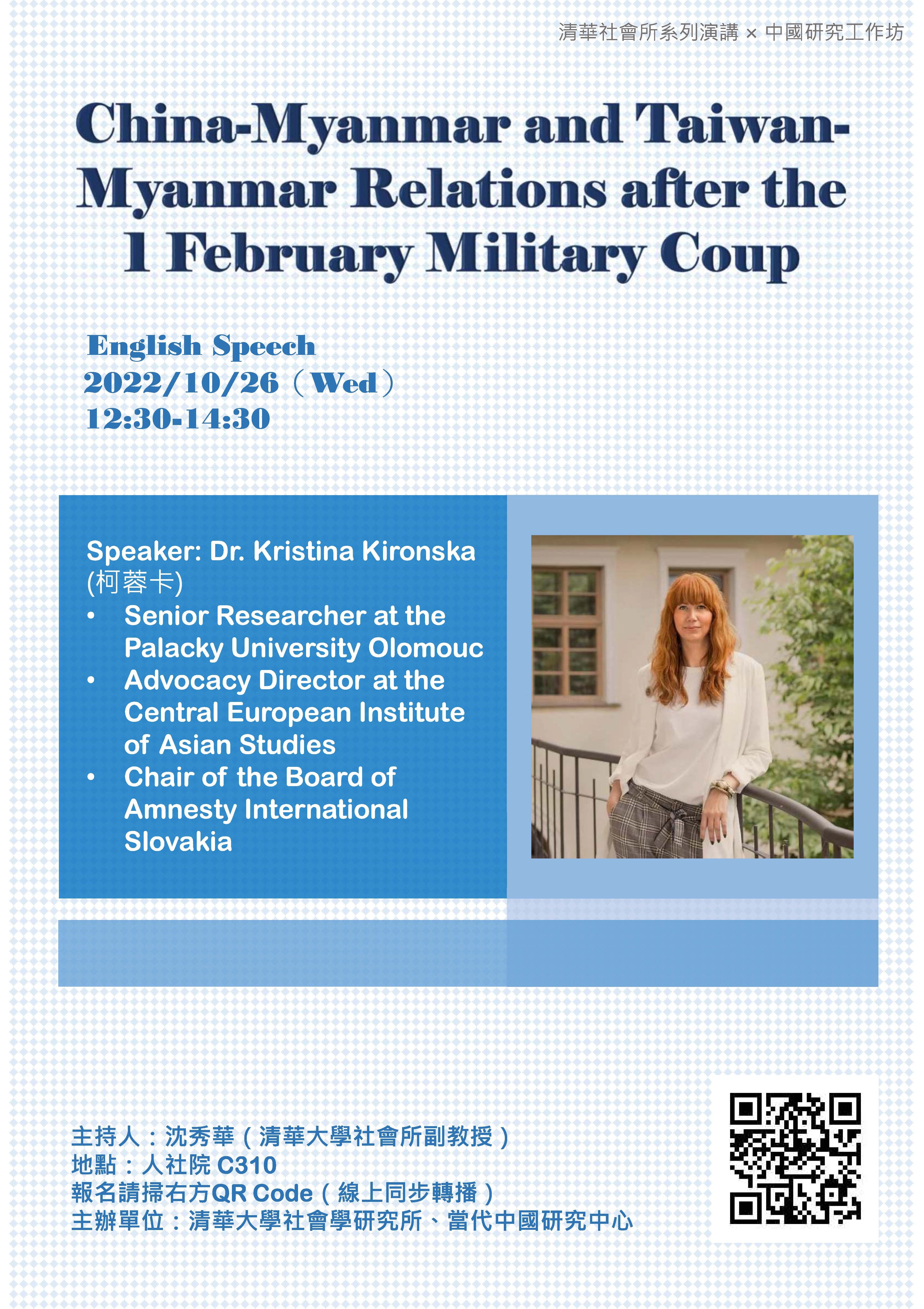【演講】China-Myanmar and Taiwan-Myanmar Relations after the 1 February Military Coup 講者:Kristina Kironska
【中國研究工作坊 X 清華社會所系列演講】(英文演講)
講題:China-Myanmar and Taiwan-Myanmar Relations after the 1 February Military Coup
■日期:2022年10月26日(三)
■時間:12:30~14:30
■地點:人社院C310
■主持人:沈秀華(國立清華大學社會學研究所副教授)
■講 者:Dr. Kristina Kironska(Palacky University Olomouc & Central European Institute of Asian Studies)
■演講簡介:Following Myanmar’s 1 February military coup, Beijing has remained more cautious than other countries in its response. Protesters accused China of supporting the Myanmar generals, torching Chinese factories, and boycotting Chinese products in response. However, Beijing’s initial ambiguous attitude towards the coup did not favor the Tatmadaw (military), and despite a reasonable relationship with Aung San Suu Kyi did not favor the protest movement either. As time passed, China edged increasingly closer to recognizing the military regime, approving funds for infrastructure projects, and donating COVID-19 vaccines. Why did such a shift occur? Although initially logical and beneficial, appearing neutral would become more costly to China’s strategic interests as time goes on, and consequently, China would likely eventually cooperate more closely with the Tatmadaw.
Myanmar’s close alliance with China – the paukpaw (fraternal) relationship – constituted already in the past an obstacle for Taiwan to deepen relations with Burma/Myanmar. Despite some recent successes, such as the exchange of representative offices in 2016 and the intensification of economic and people-to-people links, the relationship was very cautious, especially in political terms, with Taiwan remaining quiet on the Rohingya issue. Following the military coup in Myanmar in 2021, Taiwan took a (mostly rhetorically) tougher line against the new military regime and accepted a parliamentary motion to criticize the coup. The Myanmar community in Taiwan came out to protest against the military, and the Milk Tea Alliance brought together campaigners from the region. While China has, with some hesitation in the beginning, increased cooperation with the Myanmar junta, Taiwan’s stance is attractive to the other side: the pro-democracy movement. Has Taiwan found a new way how to diffuse its co-optive power in Myanmar and bet on a value-based policy? Will this approach help Taiwan differentiate itself from China among the Myanmar people?
■報名連結:https://docs.google.com/forms/d/e/1FAIpQLSc2DJxwcC5iDTkYVs4QMxQao3yd_5ocykuDWg7uLWTTSCv9Tw/viewform
■報名截止:2022/10/24(一)23:59
